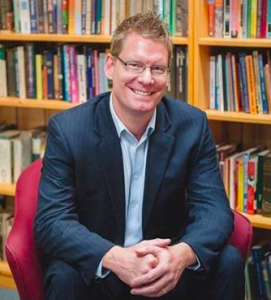 The word “missional” has a history: it owes its origins in Karl Barth who spoke about the action of God in this world but it was captured by the ecumenical movement to become mostly social activism in the public sector. Two theologians, probably neither “evangelical,” recaptured the term “missional” and reshaped it toward its more original sense. Those theologians were Lesslie Newbigin and David Bosch, Newbigin an English missionary theologian in India and Bosch a South African New Testament and theology scholar. This story is told by Tim Keller in his Center Church project.
The word “missional” has a history: it owes its origins in Karl Barth who spoke about the action of God in this world but it was captured by the ecumenical movement to become mostly social activism in the public sector. Two theologians, probably neither “evangelical,” recaptured the term “missional” and reshaped it toward its more original sense. Those theologians were Lesslie Newbigin and David Bosch, Newbigin an English missionary theologian in India and Bosch a South African New Testament and theology scholar. This story is told by Tim Keller in his Center Church project.
Do you think there’s hope or value for the term “missional”? How do you understand it? Do you think “missional” stands itself against “evangelism”? Has it become a virtual synonym for social action in the public sector?
Keller himself captures “missional” within his own Reformed theology. His sketch reveals four dimensions of kinds of missional theology or missional ecclesiology:
1. Missional as evangelism.
2. Missional as incarnational: Frost and Hirsch.
3. Missional as contextual: Belcher, Kimball, Keller, Stetzer.
4. Missional as reciprocal and communal: Roxburgh.
But Keller thinks the four have some common features, including believing the church is in a post-Christendom age, that the church has been captured by culture, that the church is sent to be a blessing, and that the church ought to be a contrast community.
Keller though has problems with missional ecclesiology, and he finds major issues in it not being comprehensive enough (too many leave out too much of theology and gospel and Bible), that it is often tied into one form (anti-megachurch, small church, etc), and a loss of a clear understanding of the gospel (and here Keller develops his classic Reformed gospel of God’s wrath and penal substitution, finding a problematic expression in Dieter Zander).
Keller presses on, in spite of these, to offer “marks of a missional church,” a reformed, rejuvenated, and renewed understanding of missional:
1. It must confront society’s idols (esp self-actualization as the absolute).
2. It recognizes that most of our recently formulated gospels fall on deaf ears.
3. It knows all Christians are on mission in every area of their life. (Here “mission” is the transformationalist model of influencing culture.)
4. It is a servant community in the community as a counterculture for the common good.
5. It must be “porous”: the line between believers and nonbelievers/seekers/etc is not determinative for all the ministries of the church (here he sounds like the recent post I had about Andy Stanley).
6. It practices Christian unity on the local level as much as possible.











